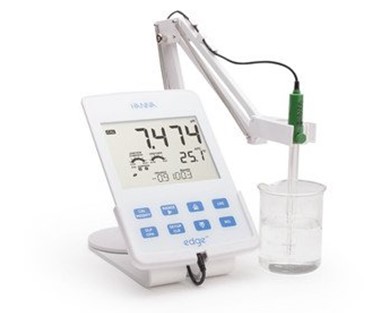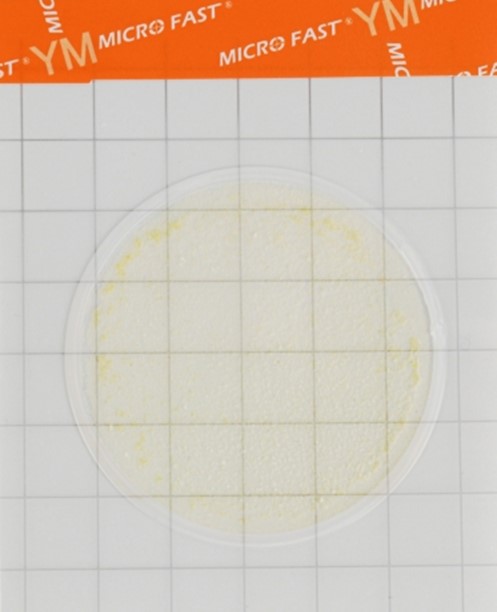The number of vegetable protein consumers in the world will grow
According to the forecast of the Union of Plant-Based Products, the proportion of vegetarians in the world will increase. Now in European countries, the number of people who adhere to a vegetarian diet is more than 4%, and in the future, 7% of the world's population can switch to plant-based diets. This will also be due to the expansion of the range of plant products. By 2026, the union estimates that the market for plant-based alternatives to animal products will be $82 billion, with an average annual growth rate of 10%.
“Now the global market for plant-based alternatives is just emerging. The global MEAT market is valued at $1.3 trillion and plant-based alternatives at $4 billion. That's next to nothing. If the share of alternative products is up to 10% of natural meat production, then in terms of money the industry will grow to $150-160 billion,” says Sergey Ivanov, executive DIRECTOR of the Efko group (one of the producers of vegetable “meat” in RUSSIA).
He believes that the increase in the share of plant-based alternatives has several prerequisites. Firstly, the world is seriously concerned about the problem of greenhouse gas emissions, and the contribution of cattle to this process is already 16%. To reduce this figure, it is necessary to replace traditional meat with alternative sources of protein. In addition, with the growth of the population to 10 billion people, the need for meat will increase not proportionally, but twice. Instead of 400 million tons, 800 million tons will be needed, and it will simply be impossible to produce them. “Therefore, 10% is the lowest and most conservative estimate. A more realistic figure for alternative protein sources is between 30% and 40% by 2050,” Ivanov said.
The top manager believes that it is equally important for Russian producers of alternative protein to both develop domestic consumption and focus on exports. “When exporting plant-based alternatives to meat and dairy products, domestic companies have the opportunity to receive $2-3 billion in revenue. The most attractive markets for such products are CHINA , the Middle East, Southeast Asia and Western Europe,” he adds.
The HEAD of the National Meat Association (NMA), Sergei Yushin, believes that the number of people consuming alternative proteins will grow, because the world's population is also growing at a high pace. The question is whether the proportion of such people will increase. “The very predictions of the representatives of the plant-based products industry, I think, are often dictated by business interests, and, perhaps, a somewhat distorted idea of the nature of man and mankind. Also, aggressive PR and marketing, including exploiting insufficiently objective and in-depth analysis and inaccurate facts, is an opportunity to attract new investments in the industry, including gullible and emotional investors, and consumer attention to such products,” commented Yushin. He recalls that a forecast was recently announced, that in ten years Russia's share in the world market of vegetable imitations of natural meat will be 15%. However, this forecast raises serious doubts for the head of the NMA, since in order to reach such volumes, multi-billion investments are needed.
“It should be borne in mind that over the past decades, the proportion of people who have given up meat has hardly increased. And those who do not consume it in poor countries are not vegetarians and not protectors of animals and the environment, but very poor people who simply do not have the economic opportunity to diversify their diet with animal proteins. I immediately recall the dialogue between Kolya and Lisa in "The Twelve Chairs" - there a young couple was forced to eat carrot sausages from lack of money, but the husband resorted to the most ridiculous arguments to justify himself to his wife, ”says Yushin.
The largest population growth in the world will occur in the poor countries of Africa, Asia, Latin America, he continues, and as the economy develops and incomes rise, the population of these countries will first increase meat consumption, and not think about vegetarianism, veganism or consumption of imitation meat. Thus, in the long run, there will be more consumers in the diet of meat and other animal products. The share of vegans, at best, will remain stable, and at worst, it will decline, Yushin thinks.
According to the forecasts of the head of the NMA, by 2030 it is necessary to produce an additional 35-40 million tons of meat in order to meet the growing demand. “And two questions arise: will pea burger manufacturers be able to provide such volumes, and do we have so many consumers who want to buy just such a product instead of meat all the time, and often at a higher price than meat?” .
One of the arguments of manufacturers of alternative products is that people are increasingly worried about climate change on the planet. “Again, there are several questions. How many of the 7.5 billion people in the world's population actually think about it? How many of those who think are ready to change their lifestyle and consumption of goods, including food, for the sake of carbon neutrality? How many of those who are ready to change it will be able to spend more money on food, which with such approaches will definitely only rise in price? I think the number of such people is extremely small compared to the population of the planet, ”says Yushin. In developing and dozens of the poorest countries with millions of people, people are not at all concerned about climate change.
“If you delve into ancient history, then meat consumption is deeply rooted in human physiology. People were ready to die for him hunting mammoths and wild boars with their huge tusks and fangs. Remember the illustrations from the textbooks of the history of the ancient world. They could just grow peas near the house and eat them, but they chose something else, ”Yushin notes.
All producers of organic products in Russia were collected in one directory
Initially, the production of alternative products with imitation of the taste of meat began to develop in very rich countries with a high volume of meat consumption, the expert recalls. “According to the UN FAO, in such countries its consumption is at the level of 82-83 kg per person per year. Of course, this is a high figure, and by reducing it by 5-10%, people will not cause any damage to their HEALTH. In Russia, the average per capita annual meat consumption is rational and close to the medically recommended norm of 77 kg, the average in the world is 43 kg, and in poor countries - 23 kg. Getting richer, instead of 43 kg, people will begin to consume 50 kg of meat per capita per year. And this means that by 2050 we will need more than 100 million tons of real meat. Of course, alternative sources of protein will find their niche, but natural meat will never be replaced.”




























































